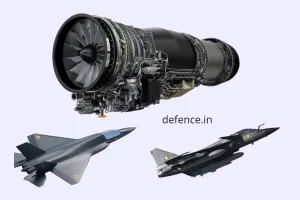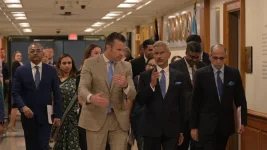- Views: 3K
- Replies: 32

India's traditionally balanced foreign policy is facing a critical test as diplomatic tensions with the West escalate, particularly with the United States and Canada. Accusations that both nations are harboring Khalistani extremists, despite repeated concerns raised by New Delhi, have fueled discussions on whether India should leverage its defence industry to supply arms to Russia, a long-standing strategic partner.
For decades, India has been the largest producer of Russian weaponry outside of Russia itself. Indian defence facilities manufacture major Russian-designed systems like T-90 tanks and Su-30MKI fighter jets under license. However, direct arms sales to Russia have been avoided to maintain strategic autonomy. This stance is now being challenged by the current geopolitical climate.
The heart of the issue lies in India's perception that both the US and Canada have failed to address concerns about Khalistani separatist groups advocating for an independent Sikh state. Despite repeated attempts by the Indian government to raise the issue in bilateral talks, perceived inaction by both countries has led to growing frustration in New Delhi.
Canadian Prime Minister Justin Trudeau has been particularly criticized for his perceived "anti-India rhetoric" and what India sees as a failure to curb the activities of Khalistani extremists within Canada. This perceived disregard for Indian national security has significantly strained relations between the two countries.
Adding fuel to the fire, Russian media outlet Sputnik recently highlighted the contrast between Russia's unwavering support for India and the West's alleged tolerance of secessionist movements. This has further solidified the perception of Western "hypocrisy" in the eyes of some Indian officials.
With Russia being a crucial defence partner since the Cold War, supplying India with everything from fighter jets to submarines, the question now arises: should India leverage its domestic arms production capabilities to reciprocate this support?
Interestingly, while India has not directly sold arms to Russia, Ukrainian forces have reportedly acquired Indian-made equipment through European intermediaries during the ongoing conflict. This has led some Indian defence experts to argue that selling arms to Russia could be a way for India to assert its independence on the global stage and send a clear message to the US and Canada about the consequences of their perceived support for Khalistani extremism.
However, such a move is not without risks. Approving arms sales to Russia could further strain relations with the West and complicate India's efforts to maintain its strategic autonomy. As India navigates this complex diplomatic landscape, the decision on arms sales to Russia represents a significant foreign policy challenge with potentially far-reaching consequences.


